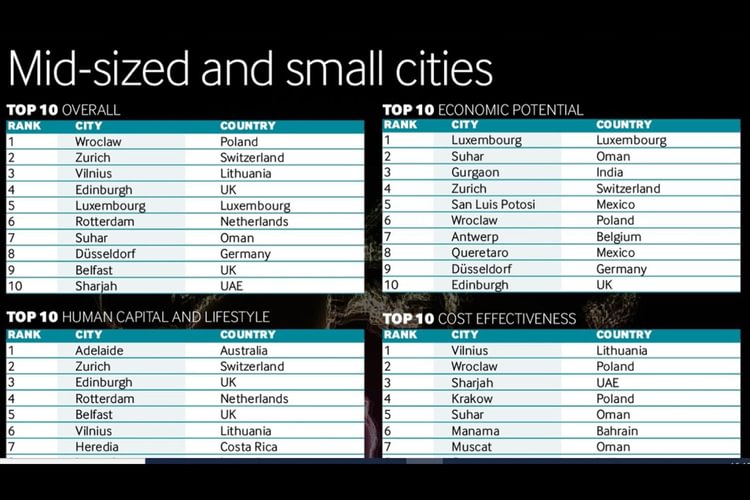Vilnius named among the top-25 Global Cities of the Future for foreign direct investment
Vilnius has been ranked among the top-25 Global Cities of the Future for the first time ever by fDi Intelligence, a specialist division of The Financial Times that ranks cities based on a number of foreign direct investment indicators. Having evaluated the recent foreign investment attracted to the city, various economic indicators and overall business development, Lithuania’s capital was ranked 24th alongside cities like Singapore, London, Dubai, Amsterdam and New York. Vilnius is the only city from the Baltic States included on the list.
Acknowledgement of Lithuania’s capital among top-tier international cities has been growing consistently in recent years. Even in the light of global uncertainty and challenges related to the pandemic and Brexit, Vilnius has managed to recognise and take advantage of opportunities while promoting business development and building its image as an open city.
Stronger international positions like this help Vilnius attract more attention from foreign investors, resulting in a higher number of well-paid jobs and increased tax collection in the city, as well as a bigger number of higher quality services to residents of Vilnius.
“We all perfectly feel and see the growth of Vilnius, and that creative people seem to be increasingly falling in love with and choosing this city. It is not a coincidence – we all work to make this true. I am glad to see that the world increasingly notices and recognises it. This acknowledgement is not unexpected, yet it’s still something to be proud of and a benchmark to build on,” notes Vilnius Mayor Remigijus Šimašius.
Inga Romanovskienė, Head of Go Vilnius, the city’s Business and Tourism Agency, points out that Vilnius has been increasingly referred to as open and hospitable, and home to many talented and diligent people, which plays a critical role in attracting foreign businesses and talent.
“The number of international companies and talented professionals from abroad has been increasing in Vilnius, and they are choosing this city for its hospitality as well as its open and creative atmosphere,” comments Romanovskienė. “Our task is to keep working to make the experience of foreigners in Vilnius as smooth and positive as possible, from their arrival until integration, and to attract even more top-class specialists and businesses that will create both high-added value products and jobs. We are certain that Vilnius can establish itself as an attractive global city for a long time to come.”
Vilnius has also progressed from seventh to fourth place on fDi Intelligence’s Mid/Small Cities category, ahead of cities like Rotterdam, Luxembourg and Edinburgh. Moreover, the city also improved from second to first position in the Cost Effectiveness category; from sixth to second in the Business Friendliness category; and from ninth to sixth in the Human Capital and Lifestyle category.
fDi Intelligence experts compile the Global Cities of the Future ranking every few years for the purpose of identifying the most promising locations worldwide in terms of investments and business development. The cities are ranked based on their economic, financial and business strengths. Beyond the overall ranking, cities are also acknowledged in six distinct categories: Economic Potential, Cost Effectiveness, Connectivity, FDI Strategy, Human Capital and Lifestyle, Business Friendliness.

